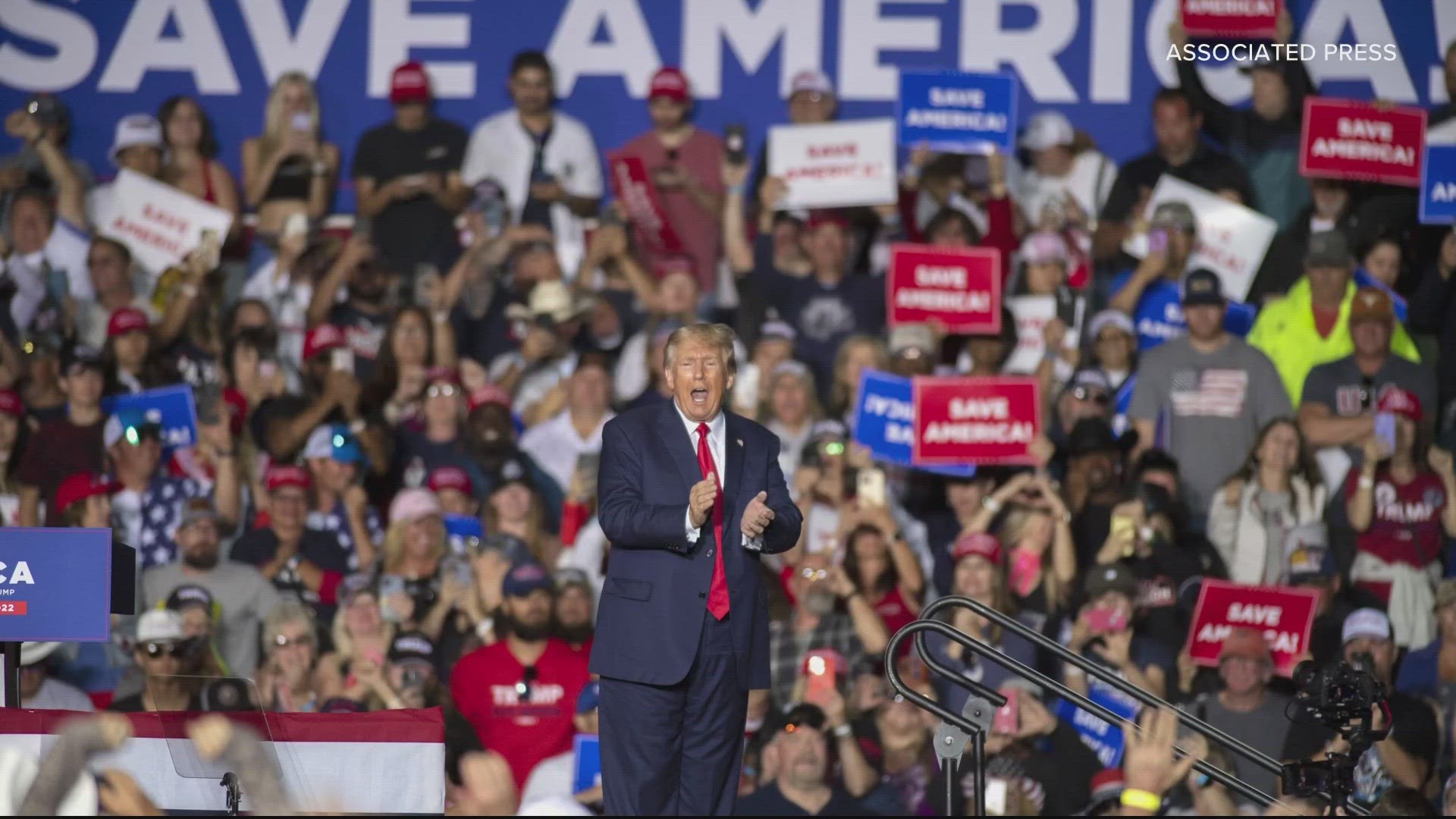WASHINGTON — Former President Donald Trump said again Tuesday that there is a judicial precedent to exonerate him from charges related to his possession and handling of classified documents.
He mentioned the case known as the "Clinton Socks Case" on his Truth Social account, a couple days after discussing it during a campaign rally in Georgia.
THE QUESTION
Is the Clinton Socks Case a direct equivalent to the case against former President Donald Trump?
THE SOURCES
THE ANSWER
While the cases both involve records related to a president's term in office, there are distinctions that make them an imperfect comparison.
WHAT WE FOUND
During a campaign event in Columbus, Georgia on June 10, Donald Trump discussed the indictment against him related to classified documents found at his Mar-a-Lago home. He said, "They also don't mention the defining lawsuit that was brought against Bill Clinton. And it was lost by the government, the famous socks case that says he could keep his documents. They don't mention that."
He brought it up again before his arraignment, writing on Truth Social, "THE GRAND JURY WAS NEVER TOLD ABOUT THE PRESIDENTIAL RECORDS ACT OR THE CLINTON SOCKS CASE, BOTH EXONERATING!"
The case he referred to is Judicial Watch v. National Archives and Records Administration.
While Bill Clinton was president, he and an historian created audio tapes about his presidency. Those tapes were turned into a book in 2009, but before that, CBS and others reported that the former president kept the recordings in his sock drawer.
After the book's release, Judicial Watch, a conservative, nonprofit organization, sued to have the tapes publicly released. It argued that the tapes recorded the president's phone calls, not just recollections of those calls. That would make them presidential records and not personal records.
The Presidential Records Act of 1978 was passed in response to President Richard Nixon's handling of documents related to the Watergate scandal. It distinguishes between presidential records and personal records. Presidential records directly relate to the president's official duties, while personal records can include journals and recollections of their duties, items related to their campaigns or outside political activity, or other private matters.
Judge Amy Berman Jackson dismissed Judicial Watch's lawsuit against the National Archive and Records Administration (NARA). In her opinion, she stated that the NARA did not have the ability to declare an item to be a presidential record; it did not have possession of the tapes; and had no ability to seize them or compel former President Clinton to release them.
So, contrary to former President Trump's statement, the government did not lose that case.
While that was a civil case, former President Trump faces criminal charges related to the documents allegedly in his possession.
The Justice Department also did not cite the Presidential Records Act in its indictment of Donald Trump. It cited statutes in the Espionage Act about the possession of documents related to national defense.

